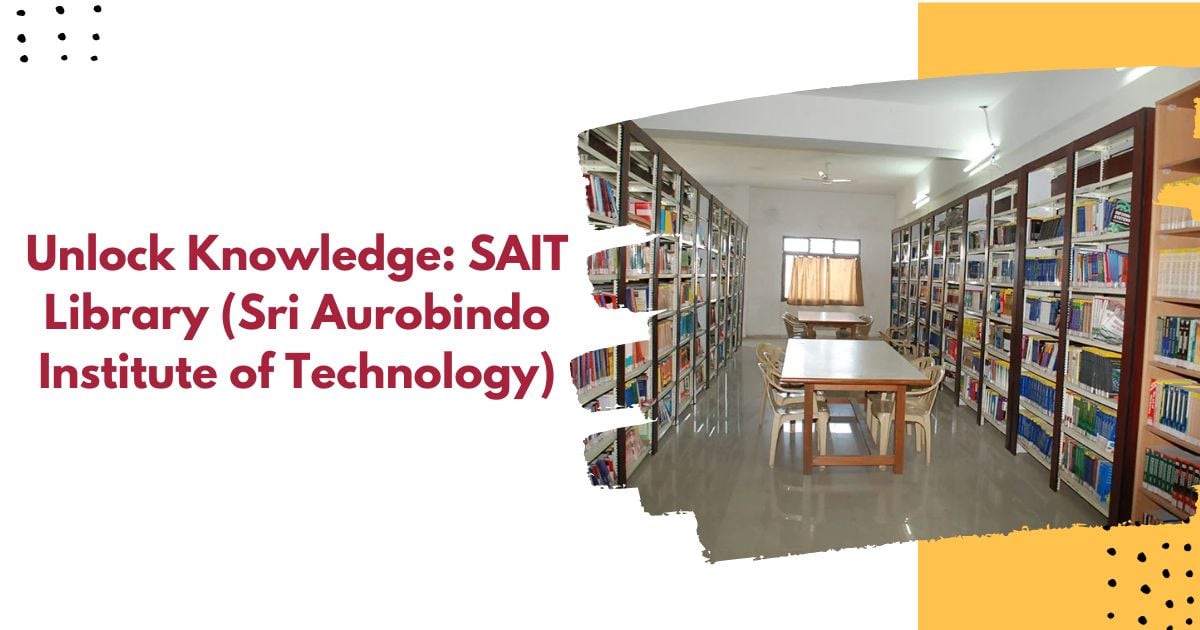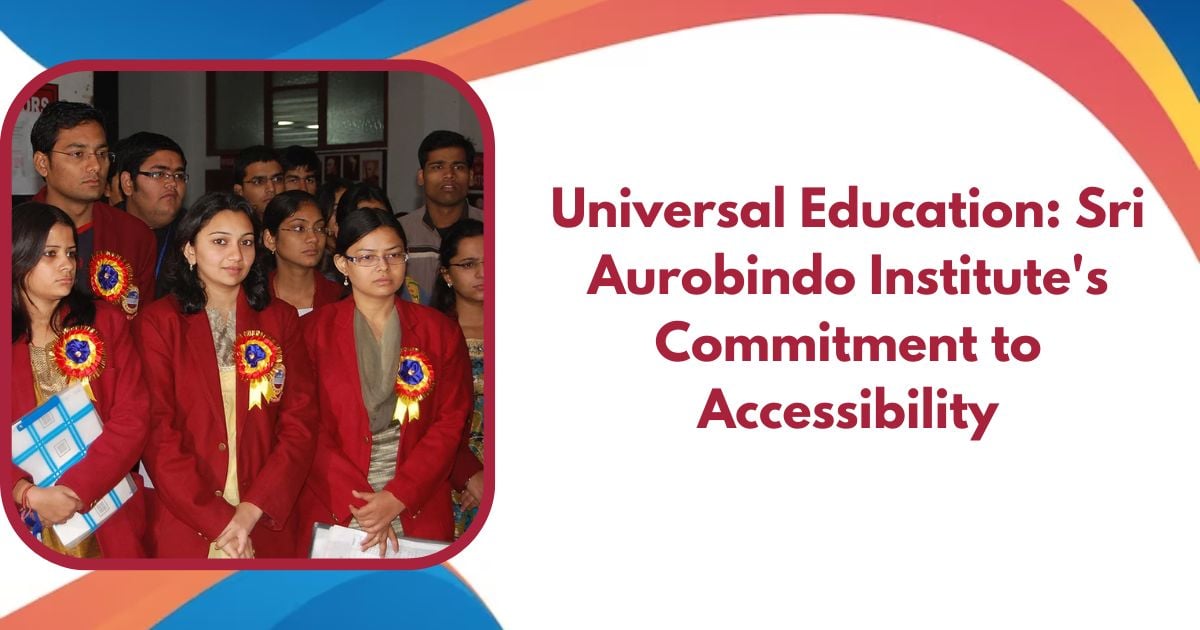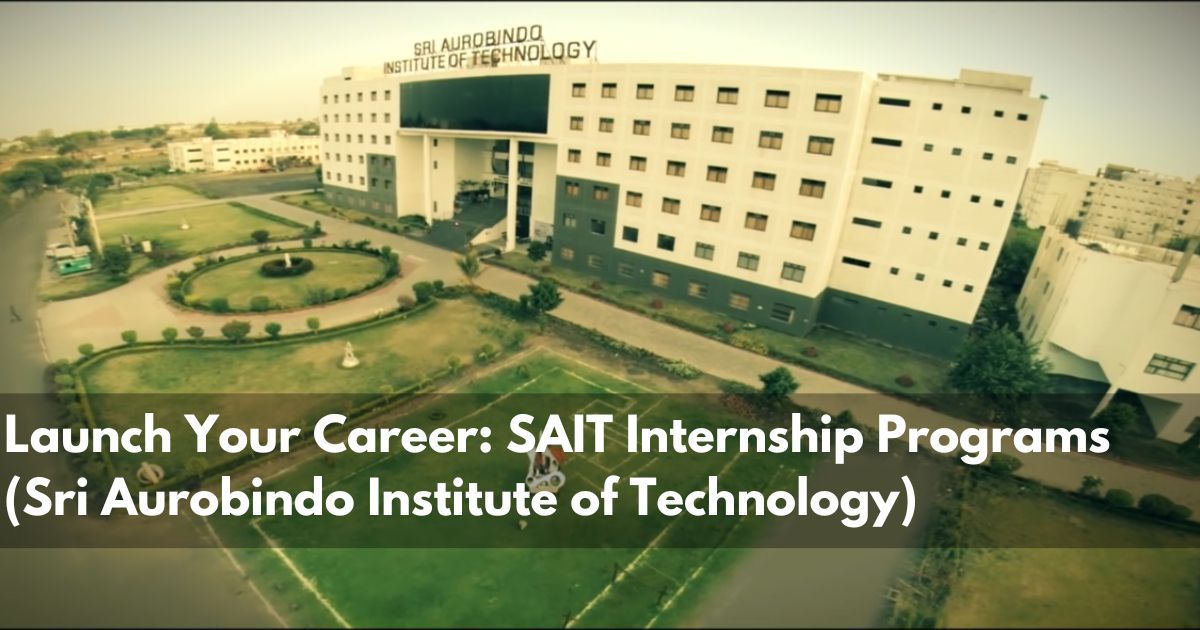Exploring the Industry: SAIT's Insightful Industry Visits and Their Impact on Education
In an era where theoretical knowledge no longer suffices, educational institutions are constantly seeking ways to bridge the gap between classroom...
4 min read
 Admin
:
September 30, 2023
Admin
:
September 30, 2023

In an era dominated by the digital age, where information is just a click away, one might question the relevance of a traditional library. However, libraries continue to play a pivotal role in shaping the academic and intellectual landscape of educational institutions.
The SAIT Library, nestled within the Sri Aurobindo Institute of Technology campus, is a prime example of how these timeless institutions are evolving and expanding to cater to the needs of the modern student.
Sri Aurobindo Edupark has effectively expanded its outreach to the broader academic community through its well-equipped and distinct libraries. In these libraries, you can find a wide range of books and research journals covering various fields such as Engineering and Technology, Management, Pharmacy, Commerce, Pure Sciences, and other related subjects. Our primary objective is to curate a well-rounded collection of reading materials that can cater to the diverse needs of the academic community, ensuring that the correct information reaches the right users at the right time.
These libraries offer comprehensive access to an array of resources, including books, journals, reports, online databases, e-books, theses, dissertations, newspapers, and magazines, which are accessible to both students and faculty members. This robust accessibility fosters and bolsters the academic environment by providing seamless access to a wealth of information resources.
The campus hosts two libraries, one being the SAIT Central Library.
Occupying the highest floor of SAIT, the SAIT Central Library is exclusively devoted to serving the academic needs of students and faculty. It boasts a distinctive and generously sized reading area designed with innovative features and layout. The library houses an extensive assortment of resources, including books, research journals, theses, weekly and monthly magazines, newspapers, and electronic documents.

In addition to these offerings, the SAIT Central Library also provides access to a substantial collection of e-books and journals.
SAIT has a diverse collection of books and other attached facilities like-
- Internet Access: The library provides computer stations with internet connectivity for students.
- CD-ROMs and DVDs: There is a dedicated section within the library housing a collection of CDs and DVDs, catering to the needs of both students and teachers.
The RGPV Central Library offers comprehensive library services to its affiliated institutions, encompassing 5 UTDs, 155 Engineering Colleges, 5 Architecture Colleges, 87 Pharmacy Colleges, 80 MCA Institutions, and 85 Polytechnics.
Our e-library grants users access to a vast collection of over 100,000 eResources covering diverse subjects such as Architecture, Biochemistry, Biotechnology, Applied Sciences, and more. This collection includes top-tier, peer-reviewed journals and eBooks from globally renowned publishers.
The National Digital Library of India (NDLI) is a virtual repository of educational resources that offers a wide range of services to the learning community. It is sponsored and guided by the Ministry of Education, Government of India, as part of the National Mission on Education through Information and Communication Technology. NDLI is developed, operated, and maintained by the Indian Institute of Technology Kharagpur.
NDLI caters to specific user groups, including school and college students preparing for examinations and job seekers. Additionally, it serves researchers and general learners. The platform is designed to support individuals at all academic levels, across various disciplines, and on various devices. It is also accessible to differently-abled learners, ensuring inclusivity. NDLI allows people to access and learn from global best practices and enables researchers to conduct interconnected research across multiple sources.
The library utilizes IFW Campus ERP 2.0, enabling students and staff to view the available book catalogue using their unique library software login credentials. Transactions related to borrowing and returning books can also be conveniently managed through this platform. In addition to books, users can request access to magazines, journals, periodicals, newspapers, and their respective subscriptions through IFW Campus ERP 2.0.
To ensure the smooth functioning of this vital resource, it is imperative to establish clear and concise rules and regulations. These library regulations are designed to maintain order and facilitate an environment conducive to learning and research.
Whether you are a member of the teaching and non-teaching staff or a diligent student, understanding and adhering to these guidelines is crucial for the efficient operation of the library. Below, we outline the library rules and regulations for both educators and students, highlighting the expectations and responsibilities that each group must uphold. These guidelines aim to create a harmonious library experience where the pursuit of knowledge takes center stage, fostering an environment where everyone can benefit from the wealth of resources available.
Library Hours: 9:00 AM to 5:00 PM
For Teaching & Non-Teaching Staff:
For Students:
Conclusion:
In conclusion, the SAIT Library is not just a place to find books; it's a place to unlock knowledge. It's a place where students can embark on intellectual journeys, expand their horizons, and deepen their understanding of the world. In a time when information is readily available but discerning what is credible and relevant is paramount, the SAIT Library stands as a beacon of wisdom, guiding students towards the path of informed learning.
As technology continues to advance and how we access information evolves, libraries like SAITs remain a vital cornerstone of education. They bridge the gap between traditional wisdom and modern convenience, ensuring that students are well-equipped to face the challenges of today's fast-paced world.
So, the next time you find yourself on the campus of the Sri Aurobindo Institute of Technology, take a moment to step into the SAIT Library. You might just find that the key to unlocking knowledge and expanding your intellectual horizons is waiting for you within its welcoming walls.

In an era where theoretical knowledge no longer suffices, educational institutions are constantly seeking ways to bridge the gap between classroom...

In a world where access to quality education is often seen as a privilege, the Sri Aurobindo Institute of Technology (SAIT) stands as a beacon of...

In an era where the landscape of education and employment is rapidly evolving, the importance of practical experience cannot be overstated.